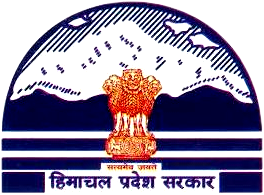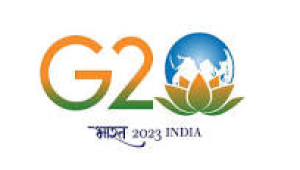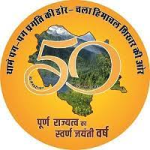COs of 4th Semester ECE
| ECEPC-411 Analog Circuits | |
|---|---|
| CO1 | Understand different circuit configuration of different devices for various applications. |
| CO2 | Design circuits by using appropriate device models |
| CO3 | Design various analog circuits required in electronic systems. |
| CO4 | Design mixed circuits such as ADC and DACS |
| ЕCЕРC-412 Microcontrollers | |
| CO1 | Understand the architecture of microprocessors and microcontrollers |
| CO2 | Develop programmes for various microcontrollers. |
| CO3 | Interface various peripherals with microcontrollers and programmes it for various systems |
| CO4 | Design and implement real-life engineering applications |
| ЕСЕРС-413 Analog Communication | |
| CO1 | Differentiate AM and FM transmission. |
| CO2 | To analyze various methods of base band /band pass analog transmission and detection. |
| CO3 | Gain the knowledge of components of analog communication system |
| CO4 | Compare bandpass digital modulation techniques for bit error rate, bandwidth and power requirements. |
| ЕСЕРС-414 Electromagnetic Field theory | |
| CO1 | Apply vector calculus operations such as gradient, divergence, and curl in different coordinate systems, and interpret their physical significance in electromagnetic field problems. (Apply - Level 3) |
| CO2 | Analyze electrostatic and magnetostatic fields using fundamental laws (Coulomb's law, Gauss's law, Biot-Savart law, and Ampere's law), and solve boundary value problems involving dielectric and conductor interfaces. (Analyze -Level 4) |
| CO3 | Evaluate time-varying electromagnetic fields using Maxwell's equations and related concepts like displacement current, Helmholtz equations, and Poynting theorem, and apply them to wave propagation in various media. (Evaluate -Level 5) |
| CO4 | Design and analyze transmission lines for different loading conditions using transmission line equations, and apply impedance matching techniques to minimize signal reflections. (Design - Level 6) |
| CSPC-414 Artificial Intelligence in Engineering | |
| CO1 | Demonstrate fundamental understanding of Artificial Intelligence (AI) and its foundation |
| CO2 | Apply basic principles of AI in solutions that require problem solving, inference, perception,knowledge representation, and learning |
| CO3 | Demonstrate proficiency in applying scientific method to models of machine learning |
| CO4 | Demonstrate an ability to share in discussions of AI, its current scope and limitations, and societal implications. |
| IKS-311 Indian Knowledge System | |
| CO1 | Explore the genesis of Bharatbhumi, Saraswati River discovery, and Saraswati-Sindhu civilization, emphasizing traditional knowledge systems and ancient educational structures. |
| CO2 | Analyze masterpiEEEs like Natraja, delve into Vedas, and study the lives and works of prominent figures such as Agastya, Valmiki, Patanjali, and Aryabhatta, highlighting their contributions to Indianculture. |
| CO3 | Study engineering and technology during the Vedic and post-Vedic ages, trace the history ofmathematics and astronomy in India, and explore the contributions of scholars from institutions like Takshashila and Nalanda. |
| CO4 | Examine temple architecture, festivals, yoga, Ayurveda, and ancient agricultural practices, emphasizing integrated healthcare approaches and environmental conservation strategies derived from Indian traditions. |
| ECEPC-411P Analog Circuits Lab | |
| CO1 | Understand and comparing the operations of different amplifiers with their characteristics. |
| CO2 | Knowledge to design and test the different types of oscillators for the generation ofrequired frequency. |
| CO3 | Knowledge to design and test the different types of converters. |
| ECEPC-412P Microcontrollers Lab | |
| CO1 | Write algorithms and programming task involved for a given problem |
| CO2 | Design and develop modular programming skills |
| CO3 | Trace and debug a program. |
| ЕСЕРС-413P Analog Communication Lab | |
| CO1 | Demonstrate a deep understanding of the fundamental principles underlying analog communication systems, including modulation techniques (AM, FM), signal transmission, and reception. |
| CO2 | Be proficient in designing, simulating, and analyzing various analog modulation techniques such as AM (DSB-SC, SSB, VSB) and FM, including understanding modulation index variations and their impact on signal quality. |
| CO3 | Analyse and evaluate signal quality parameters such as signal-to-noise ratio (SNR), bandwidth efficiency, and the effects of noise and distortion on analog communication signals. |
| CO4 | Gain practical skills in designing and implementing analog communication systems, includingreceiver design considerations (sensitivity, selectivity, fidelity), channel capacity analysis, and optimization of system performance. |
| CSPC-414P AI Lab | |
| CO1 | To understand the basic concepts of Artificial Intelligence. |
| CO2 | To apply various AI Search algorithms. |
| CO3 | To understand the fundamentals of knowledge representation and theorem proving using AI tools. |
| CO4 | Ability to apply knowledge representation and machine learning techniques to real life problems. |
| ECEEE-414P Micro Project | |
| CO1 | Identify and define a problem statement from the requirements raised from literature survey /need analysis |
| CO2 | Build and Test electronic circuits/prototype for developing real life small electronic applications. |
| CO3 | Work in teams; write comprehensive report and effective presentation of the project work. |
| CO4 | Rapid prototyping which will lead them towards entrepreneurship. |
| ECEEE-416P Internship-I (EXIT) | |
| CO1 | Identify and define a problem statement from the requirements raised from literature survey /need analysis |
| CO2 | Build and Test electronic circuits/prototype for developing real life small electronic applications. |
| CO3 | Work in teams; write comprehensive report and effective presentation of the project work. |
| CO4 | Rapid prototyping which will lead them towards entrepreneurship. |





